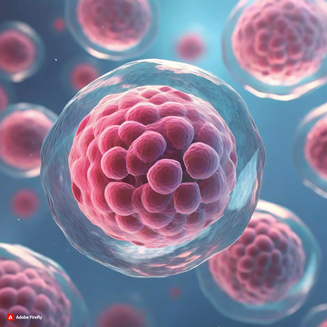Stem Cells and Ethics
Where Moral Crossroads Lead to Potential Triumphs

Imagine a world where medical innovations know no bounds! Stem cell research is the shining light that offers hope for such a future. With the unique ability of stem cells to differentiate into specialized cell types, we are on the cusp of groundbreaking advancements in regenerative medicine.
From treating diseases to healing injuries, the potential benefits of stem cells are mind-boggling. However, this field has its ethical complexities, particularly surrounding the use of embryonic stem cells.
Exciting times are ahead as we navigate these issues and unlock the full potential of stem cell research!

Background:
Stem cells possess the extraordinary ability to transform into various cell types, facilitating the healing process by regenerating damaged tissues, which is promising for conditions like spinal cord injuries and Parkinson’s disease.
The most potent type, embryonic stem cells, derived from human embryos, is challenging to acquire due to ethical considerations surrounding their source.
Scientists have found a way to transform adult cells into cells similar to embryonic ones. They use induced pluripotent stem cells to reprogram the adult cells.
Like hitting a reset button, this process eliminates the need for embryos, making it both promising and more ethical. iPSCs retain the potential for diverse cell development without ethical concerns associated with embryonic stem cells.
Constraints:
The utilization of embryonic stem cells in research has sparked ethical concerns as it involves the destruction of human embryos, prompting global debates and legal limitations in certain countries.
The moral implications surrounding the sanctity of human life have resulted in restrictions on federal funding for embryonic stem cell research in some nations.
This ongoing ethical discourse highlights the delicate balance between scientific progress and moral considerations in stem cell research.
Balancing Act:
Stem cell research can benefit regenerative therapies and a better understanding of human development. However, ethical concerns surround the practice.
To address these concerns, scientists follow strict guidelines and explore alternative sources such as induced pluripotent stem cells.
Ethical discourse plays a crucial role in shaping the field and promoting dialogue between stakeholders.
In conclusion, the question of whether research benefits outweigh ethical considerations in stem cell research is complex and multifaceted. The potential for groundbreaking medical advancements clashes with moral and philosophical concerns surrounding the use of embryonic stem cells. Striking a delicate balance is crucial as the field progresses, ensuring that ethical guidelines evolve alongside scientific innovation.
Comments
Post a Comment